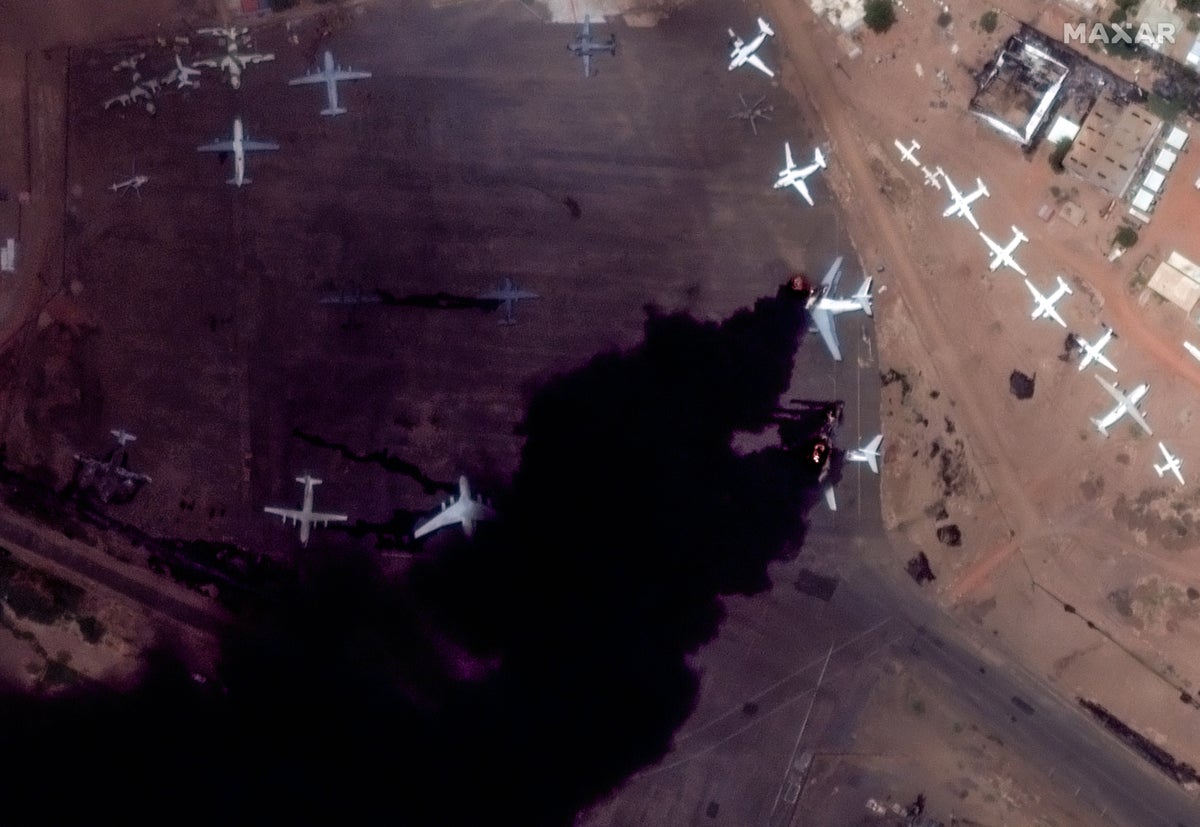
Intense fighting in Sudan entered its third day as images revealed the scale of the violent clashes between the Sundanese military and rival paramilitary groups battling for control of the nation.
So far, at least 97 civilians have been killed and 365 injured, Sudan Doctors’ Syndicate said on Monday. Among those killed were three employees of the UN World Food Programme, said the international food agency as it announced halting its operations temporarily.
Some hospitals treating injured civilians are running out of critical supplies, including “blood, transfusion equipment, intravenous fluids and other vital supplies”, said WHO.
Thick, black smoke was seen drifting across the city at multiple locations, according to the satellite imagery from Maxar.
A number of government buildings have been destroyed and many are continuing to burn. They include the Army Headquarters, Ministry of Defense, and the Ministry of Energy and Mining, according to Maxar News Bureau.
The military and the Rapid Support Forces (RSF) both claimed to be in control of strategic locations in Khartoum and elsewhere in the county.
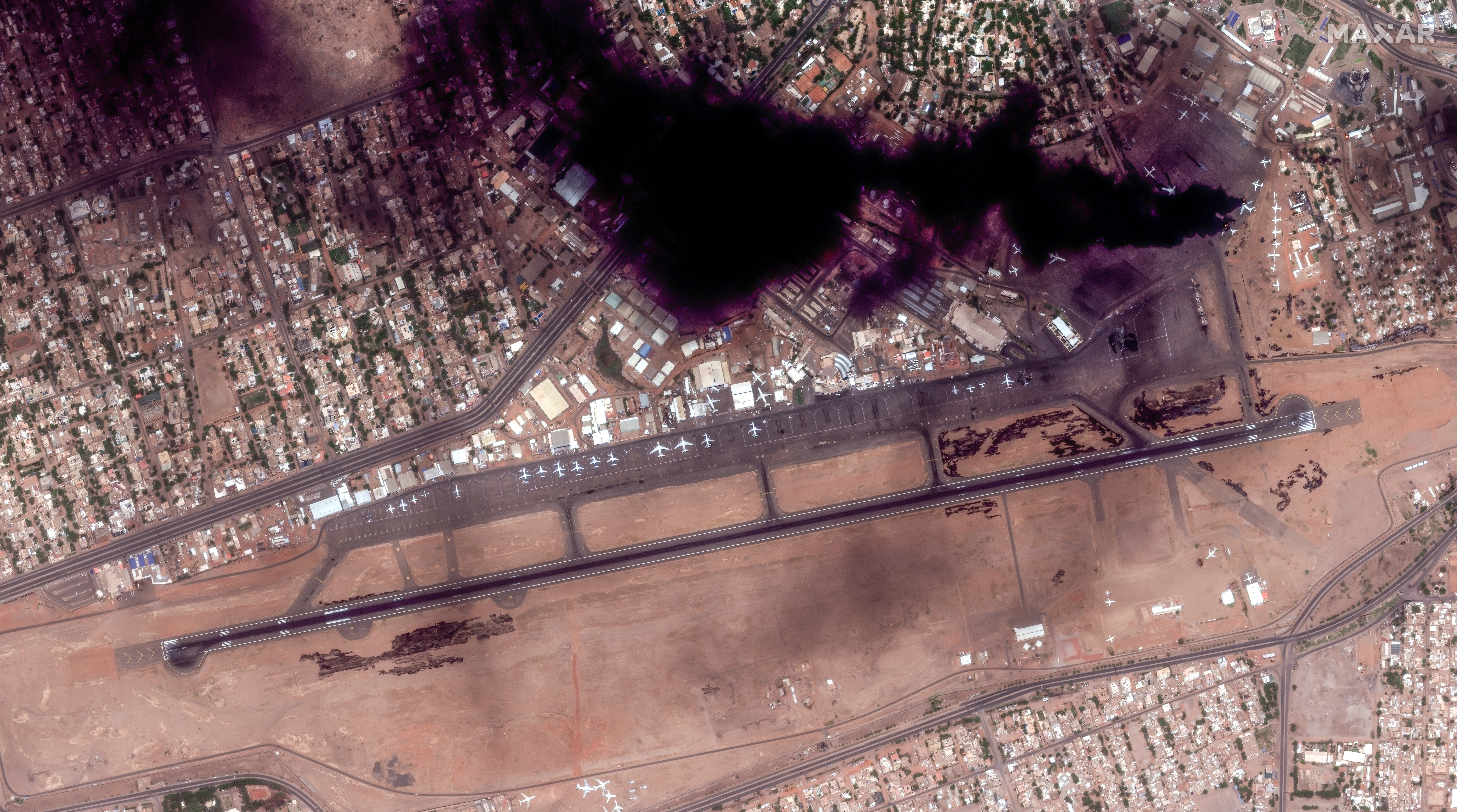
Images of the Khartoum International Airport showed two Il-76 transport aircraft on fire and several additional planes damaged.
The fighting erupted on Saturday between army units loyal to General Abdel Fattah al-Burhan, head of Sudan’s transitional governing Sovereign Council, and the paramilitary RSF led by General Mohamed Hamdan Dagalo, known as Hemedti, the deputy head of the council.
While General Burhan’s military called for dismantling of the RSF, which it labeled a "rebellious militia", General Dagalo told the satellite news network Al Arabyia that he ruled out negotiation and called on his counterpart to surrender.
Heavy fighting involving armored vehicles, truck-mounted machine guns and war planes raged in the capital of Khartoum, the adjoining city of Omdurman and in flashpoints across the country.
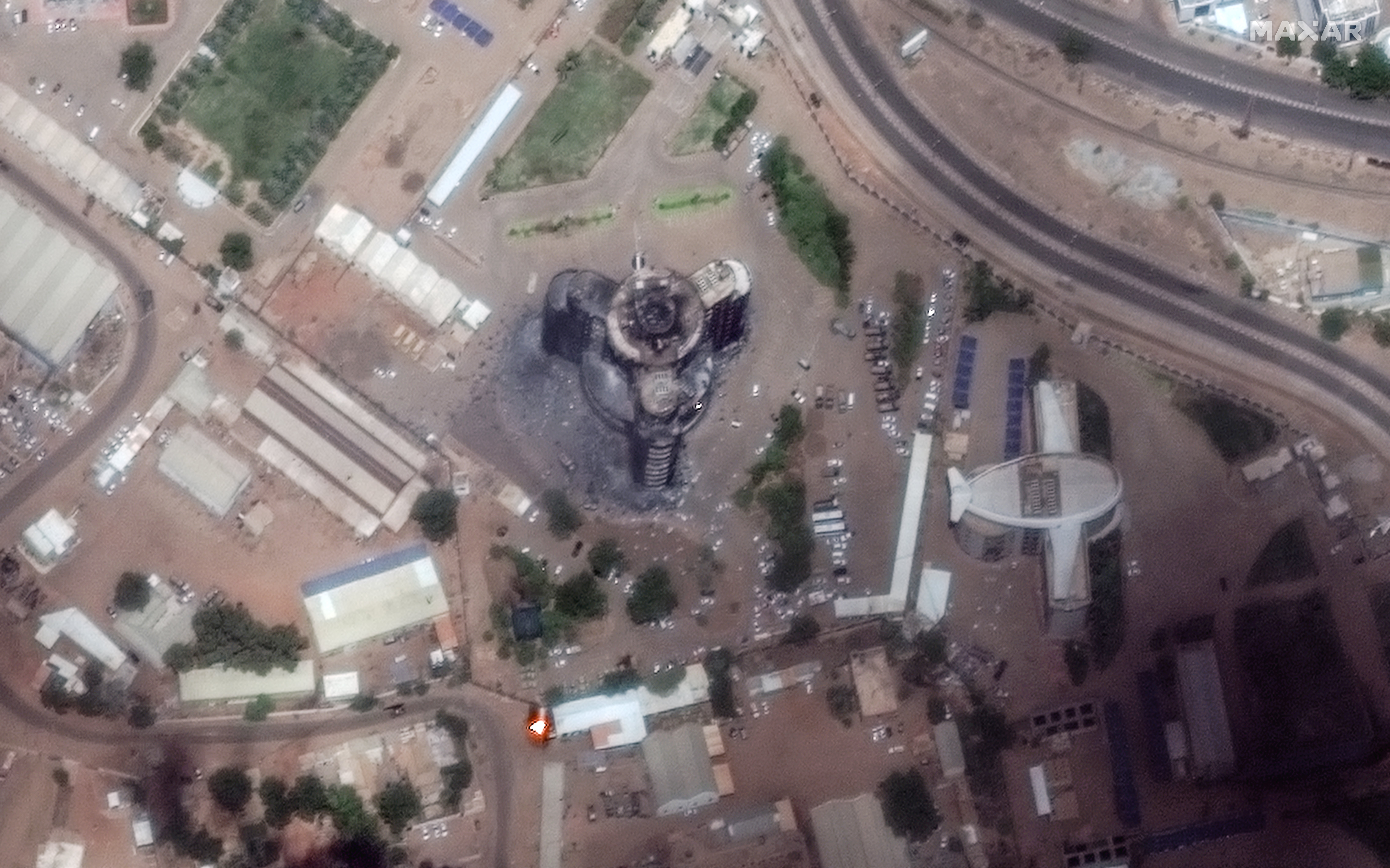
It was the first such violent outbreak since both joined forces to oust veteran Islamist autocrat Omar Hassan al-Bashir in 2019, sparked by a disagreement over the integration of the RSF into the military as part of a transition towards civilian rule. The merger is a key condition of Sudan’s unsigned transition agreement with political groups.
The two generals are former allies who jointly orchestrated an October 2021 military coup that derailed Sudan’s short-lived transition to democracy.
Earlier on Sunday, they agreed to a three-hour-long pause to allow humanitarian evacuations proposed by the UN. But the deal was widely ignored after a brief period of relative calm.
As night fell, residents reported the boom of artillery and roar of warplanes in the Kafouri district of Bahri, which has an RSF base, across the Nile river.
The clashes come as most Sudanese are preparing to celebrate the holiday that marks the end of the holy month of Ramadan, when Muslims traditionally fast from sunrise to sunset.
Fighting raged around the military’s headquarters throughout the day. "Heavy explosions and gunfire around the clock," said Amany Sayed, a 38-year-old Khartoum resident. "The battles here (in the capital) never stopped."
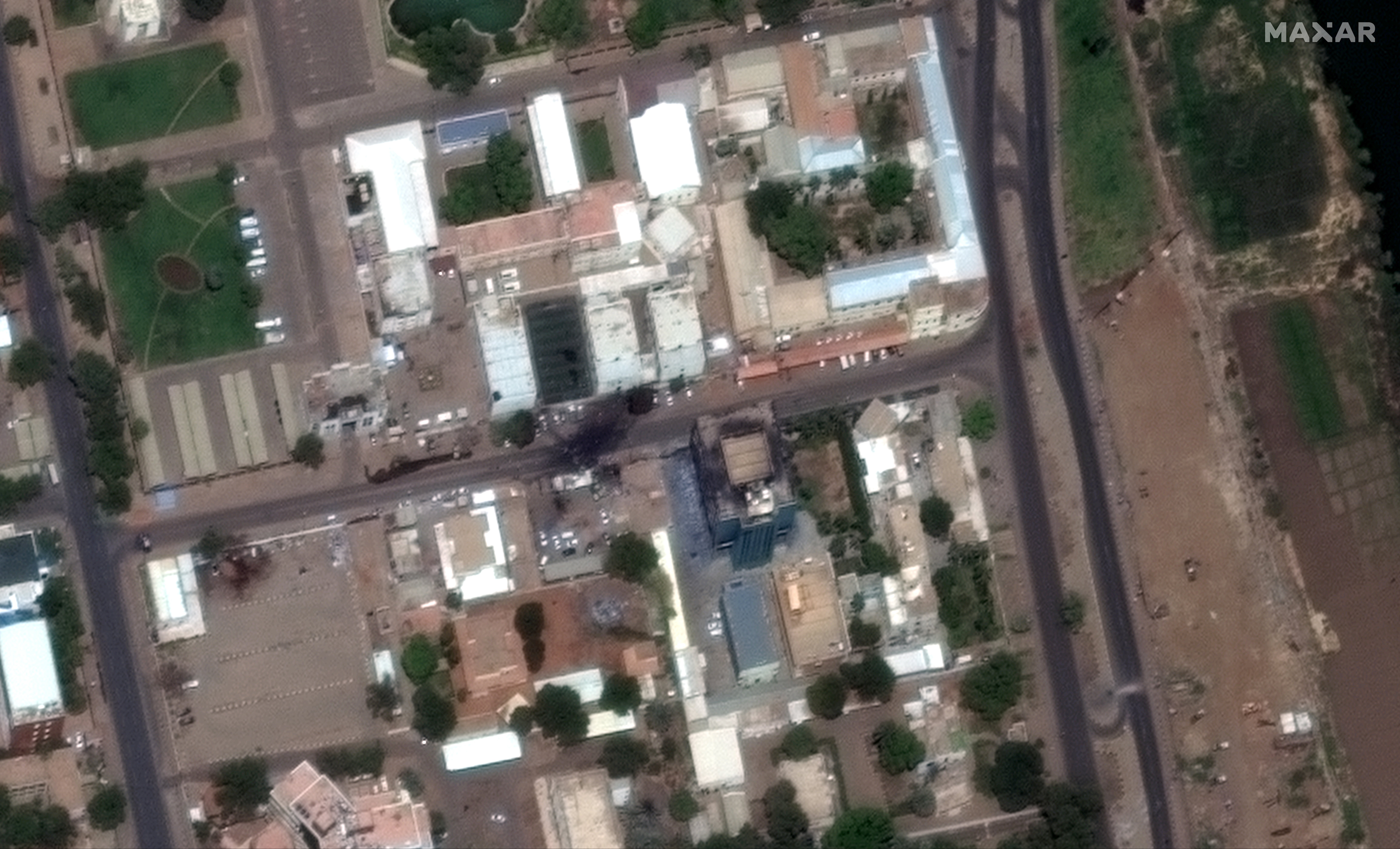
Fighting was also reported around the Khartoum International Airport and the state television headquarters. A senior military official said clashes with RSF fighters began earlier in the day around the military headquarters.
"They are shooting against each other in the streets," said prominent rights advocate Tahani Abass who lives near the military headquarters. "It’s an all-out war in residential areas."
Ms Abass said her family spent the night huddling on the ground floor of their home. "No one was able to sleep and the kids were crying and screaming with every explosion," she said.
Eyewitnesses said the army was renewing air strikes on RSF bases in Omdurman, Khartoum’s sister city across the Nile, and the Kafouri and Sharg El-Nil districts of adjacent Bahri, putting RSF fighters to flight.
Amid the deteriorating security situation, World Food Programme (WFP) executive director Cindy McCain issued a statement announcing the temporary halt in the operation of the international food agency.
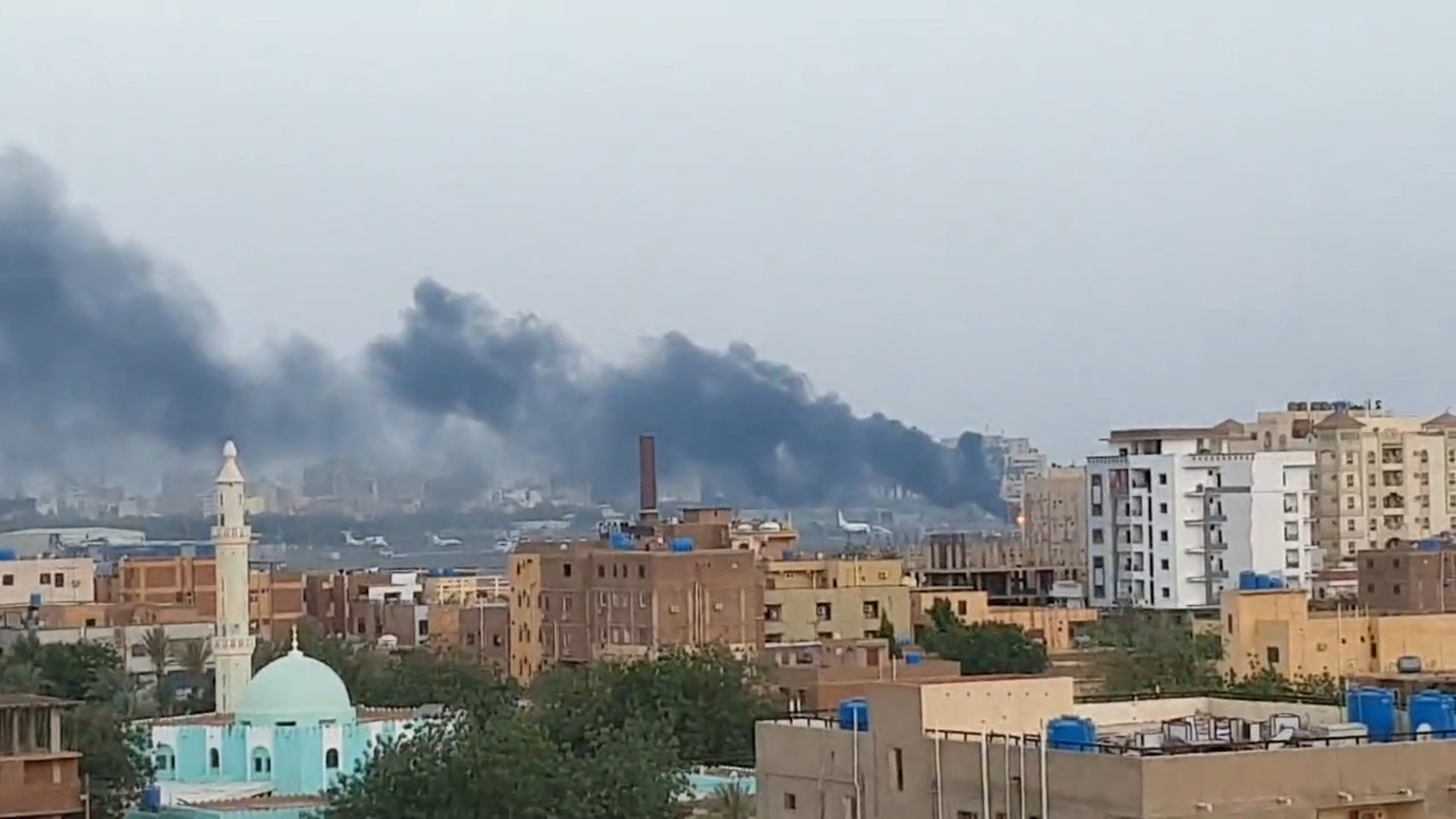
"WFP is committed to assisting the Sudanese people facing dire food insecurity, but we cannot do our lifesaving work if the safety and security of our teams and partners is not guaranteed,” she said.
Ms McCain also said it was difficult for WFP’s staff to operate after a UN Humanitarian Air Service (UNHAS) aircraft was "significantly damaged" at Sudan’s Khartoum airport during an exchange of fire on Saturday.
The incident has seriously impacted the organisation’s ability to move humanitarian workers and aid in Sudan, she said.
UN secretary-general Antonio Guterres called for those responsible for the death of civilians to be held accountable, according to his spokesman, Stéphane Dujarric.
The United States, China, Russia, Egypt, Saudi Arabia, the UN Security Council, European Union and African Union have appealed for a quick end to the hostilities that threaten to worsen instability in an already volatile wider region.
US secretary of state Antony Blinken said he consulted with the foreign ministers of Saudi Arabia and the United Arab Emirates.
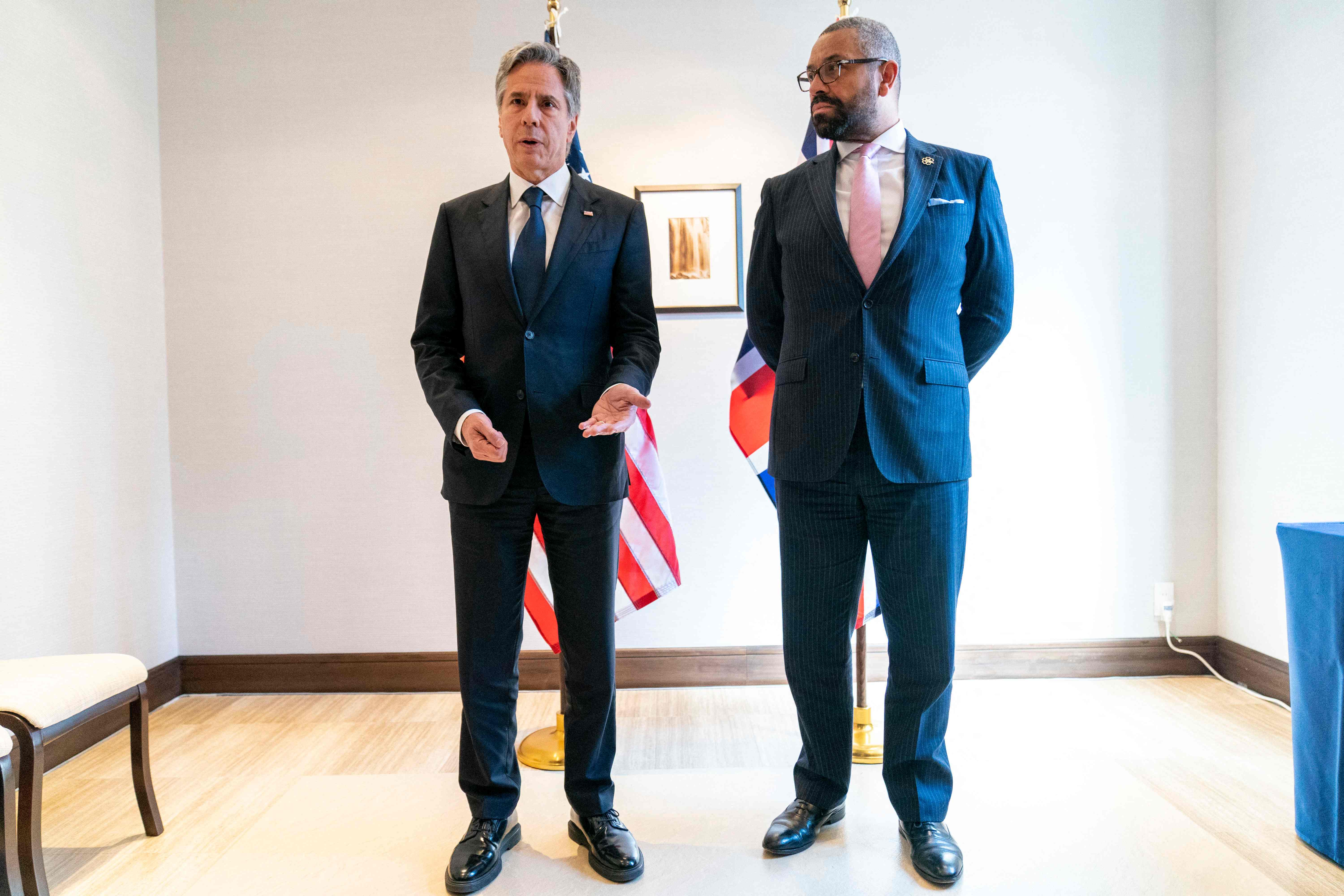
“There is a shared deep concern about the fighting, the violence that is going on in Sudan, the threat that it poses to civilians, that it poses to the Sudanese nation and potentially poses even to the region,” he said while speaking at G7 foreign ministers’ summit in Japan.
“People in Sudan want the military back in the barracks, they want democracy, they want a civilian-led government. Sudan needs to return to that path,” he said.
UK foreign secretary James Cleverly called “upon an immediate cessation of violence, a return to the talks”.
“Ultimately the immediate future lies in the hands of the generals who are engaged in this fight. We call on them to put peace first, to bring an end to the fighting, to get back to negotiations.
“That’s what the people of Sudan want, that’s what the people of Sudan deserve. We will continue to seek ways to support that road back to peace,” he said.
The UN Security Council will discuss the crisis in Sudan on Monday, said Fedor Strzhizhovskiy, the spokesperson for the UN mission in Russia, which holds the council’s presidency this month.
In recent months, internationally backed negotiations revived hopes for such a transition, but growing tensions between General Burhan and General Dagalo eventually delayed a deal with political parties.
Khalid Omar, a spokesman for the pro-democracy block that negotiated with the generals in recent months, warned that the conflict could lead to war and the country’s collapse.
In a series of tweets Sunday, Mr Omar called on pro-democracy groups to set aside their disputes to find a way to end the crisis "immediately".
Meanwhile, in Nyala, the capital of South Darfur province, the two sides fought for control of the city’s airport, said a military official who spoke on the condition of anonymity because he was not authorized to brief the media.
Sudan, a country at the crossroads of the Middle East and Sub-Saharan Africa, is known for its history of military coups and civil conflicts since it gained independence in 1950s. A decade-old civil conflict resulted in the secession of South Sudan in 2011.
Additional reporting from the wires







